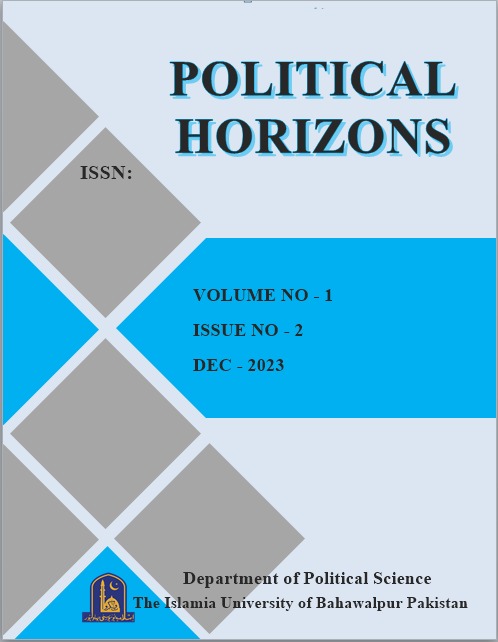Examining the Narrative Control in Pakistani Political Discourse
Abstract
Power shifts that are carefully planned have plagued Pakistani politics for many years. These schemes, which are frequently concealed by selective prosecutions, manipulated public opinion, and media manipulation, cast serious doubt on the validity of the nation's democratic system. This research explores the complex interplay between public consent and elite manipulation, examining the ways in which political players and the media use narratives to manipulate public opinion and eventually affect election results. With a focus on in-depth interviews with political analysts, journalists, and regular people, the research takes a qualitative approach and is based on agenda-setting theory and the hypodermic needle model of communication. Through examining the processes of story development, media cooperation, and public vulnerability, the research clarifies the intricate relationship between manipulative elites and fake consent. The results highlight the weakness of Pakistani democracy and imply that free and fair elections run by an impartial body may be necessary to terminate the cycle of coerced consent and provide people the freedom to actually exercise their right to vote.
Keywords: hyper reality, agenda-setting theory, hypodermic needle model, democratic processes, power dynamics in Pakistani politics

Downloads
Published
How to Cite
Issue
Section
License
Copyright (c) 2023 Political Horizons

This work is licensed under a Creative Commons Attribution-NonCommercial 4.0 International License.




